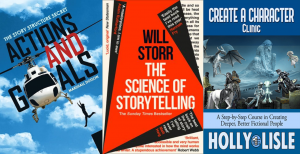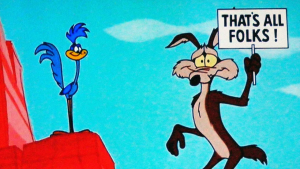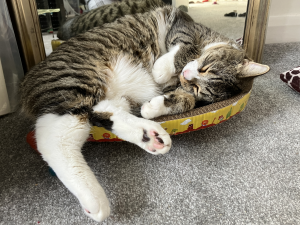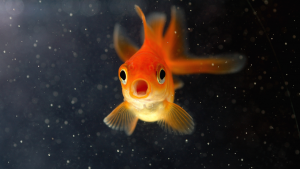 Develop your craft faster with some good advice about structure, story and character.
Develop your craft faster with some good advice about structure, story and character.
Years ago – nay, indeed, lifetimes ago – I worked in an admin role at a popular music school that taught guitar, bass guitar, drums, keyboards and vocals to predominantly young men (though there were more women taking the vocals courses). I remember being challenged on this whole idea of teaching popular music, as opposed to orchestral, on the basis that anyone can buy a guitar and just learn to play along with their favourite tunes until they’ve absorbed all the basics. Lessons are, I was told, completely unnecessary and possibly even damaging to young musical talent.
That is, of course, utter hogwash. I started learning bass guitar by noodling around on my own and listening to songs, but I rapidly realised that lessons would help. This wasn’t because I’d developed some great philosophical position on the concept of having a teacher, but because life is too fucking short to piss about trying to reinvent the Mixolydian mode when someone else has not only done it, but can teach it to you in a matter of minutes. Why spend months, years or decades figuring it all from first principles when you can learn it off someone else in a fraction of the time? It’s not like there’s some sort of extra authenticity to working out basic music theory for yourself.
I recently saw a Note asking how best to get started with writing, and I saw the same sort of attitudes creeping into the replies. And, indeed, this post began as a response to that Note, because “Just write” is bad advice, and it’s advice that can do actual harm, as I wrote back in January.
But the impact of ‘Just write!’ on the nascent author’s confidence can be devastating. There’s nothing worse than feeling that you ought to be doing something, something that you want to do, and then someone tells you that your failure is all your fault and only your fault. It’s a double helping of shame and humiliation – emotions that you probably already feel in spades without additional help.
Yes, you can dive in at the deep end and learn plot and character as you go along, but that is very much the hard way of doing things when there are so many amazing books on writing that can help writers at all levels develop their instincts. Early career writers especially need the help – whilst you do have your own instincts, the more work you do to hone and refine them, the better they will serve you going forward. There is no need to work everything out from scratch and it won’t actually make you a better writer, it will just slow you down.
When I’m reading a book about writing, what I’m looking for are ideas that help my subconscious chew over whatever writing issues I’m having at the time (and writing is 100% having issues!). I don’t follow any advice slavishly, instead I take what I need and leave the rest. And that is the best way to approach any book about writing – read it, internalise the useful bits, let the rest go.
These three books are ones that I have either gone back to time and again, or that I have found really change the way that I think. You might find them useful too.
Actions and Goals by Marshall Dotson
I have no idea who Marshall Dotson is as he doesn’t seem to exist outside of his website, but The Story Structure Secret: Actions and Goals is one of the single most useful writing books I have ever read. Dotson looks at story structure through the eyes of characters – they all have goals and they take actions to meet those goals in the face of opposing forces. Those goals change from act to act, so does the nature of the opposing force.
Dotson discusses his six act structure in relation mostly to movies, but his theories work for novels too. And short stories, if you consider a short story to have very, very short acts, or just one act. But what I like the most about Dotson’s theory is that it’s so easily applicable, whether you’re plotting a new story, stuck in the mid-story marathon, or trying to fix a story that went wrong somewhere along the line. At every point in the writing process, you can ask yourself questions such as “What is my character’s goal?”, “What actions is she taking to reach her goal?”, “What are the opposing forces preventing her from reaching her goals?” and you can start to see how your story should fit together.
The Science of Storytelling by Will Storr
The Science of Storytelling blew my mind. Seriously. There’s so many insights into how storytelling works at a psychological level and why we humans need stories in our lives, it made me think about story in a whole different way. I personally don’t get on with Storr’s five act structure (like I said, take what works for you, leave the rest), but there’s so much else in there that it’s well worth the price of admission. For example, Storr’s idea that every character has a “Theory of control”, a flawed model of how the world works that they try to apply to everything that that then results in them getting stuff wrong has been really useful for character development work. And if you can do one of his webinars, then you’re in for a treat because they are fascinating.
Create a Character by Holly Lisle
The Create a Character Clinic is actually a book with worksheets that will help you to work out who your characters really are. There are a million and one ways to create characters and maybe for some people their characters just spring fully formed from their imaginations, but the rest of us have to work at it. And when you’re at the beginning of your writing journey, you need all the help you can get. I like Lisle’s process for developing character because it’s compact and succinct and helps me to uncover the core fundamentals of my character’s personalities. It’s an easily repeatable process that I can dip into as and when I need.
So the next time someone tells you that all you need to do is sit and write, remind yourself that plenty of musicians have taken lessons, from Taylor Swift to Simon Le Bon, from Paul McCartney to Miles Davis. Plenty of authors have too, they just perhaps talk about it less often.
{ Comments on this entry are closed }










